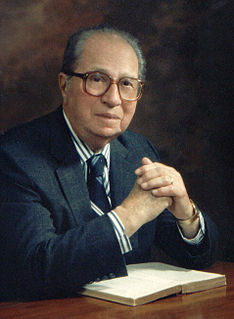 W
WMortimer Jerome Adler was an American philosopher, educator, encyclopedist, and popular author. As a philosopher he worked within the Aristotelian and Thomistic traditions. He lived for long stretches in New York City, Chicago, San Francisco, and San Mateo, California. He taught at Columbia University and the University of Chicago, served as chairman of the Encyclopædia Britannica Board of Editors, and founded his own Institute for Philosophical Research.
 W
WNimio de Anquín (1896–1979) was an Argentine Thomist writer and fascist politician. Seeking to combine European models of fascism with his own attachment to the Catholic Church he led several movements and for a time had a strong following. Subsequently, however, he lost political influence and his later life was mainly focused on his academic career.
 W
WGertrude Elizabeth Margaret Anscombe, usually cited as G. E. M. Anscombe or Elizabeth Anscombe, was a British analytic philosopher. She wrote on the philosophy of mind, philosophy of action, philosophical logic, philosophy of language, and ethics. She was a prominent figure of analytical Thomism, a Fellow of Somerville College, Oxford and Professor of Philosophy at the University of Cambridge.
 W
WRobert Emmet Barron is an American prelate of the Catholic Church serving as auxiliary bishop of the Archdiocese of Los Angeles. He is the founder of the Catholic ministerial organization Word on Fire, and was the host of the TV series Catholicism, an award-winning documentary about the Catholic faith which aired on PBS. Previously, he served as rector at Mundelein Seminary in the Archdiocese of Chicago.
 W
WThomas Cajetan, also known as Gaetanus, commonly Tommaso de Vio or Thomas de Vio, was an Italian philosopher, theologian, cardinal and the Master of the Order of Preachers 1508 to 1518. He was a leading theologian of his day who is now best known as the spokesman for Catholic opposition to the teachings of Martin Luther and the Protestant Reformation while he was the Pope's Legate in Augsburg, and perhaps also among Catholics for his extensive commentary on the Summa Theologica of Thomas Aquinas.
 W
WFrancisco Canals Vidal (1922–2009) was a Spanish philosopher, theologian, academic and lay Catholic activist. The longtime chair of Catedra de Metafísica of the Barcelona University, he is recognized mostly as one of the most distinguished contemporary Thomists and leader of the so-called Barcelona Thomist school; his scientific focus was mostly on metaphysics of cognition. As a theologian he specialized in theology of history and Josephology, as lay Catholic he contributed to devotion to the Sacred Heart of Jesus. Historian of ideas and partially political theorist himself, he remained related to the Carlist version of Traditionalism and is considered one of its greatest contemporary masters.
 W
WPeter Coffey was an Irish Roman Catholic priest and neo-scholastic philosopher.
 W
WFrederick Charles Copleston was an English Roman Catholic Jesuit priest, philosopher, and historian of philosophy, best known for his influential multi-volume A History of Philosophy (1946–75).
 W
WJean Daujat was a French philosopher of neo-Thomism, a disciple of Jacques Maritain, and the founder of the Centre d'études religieuses, the Center for Religious Studies, specializing in teaching Christian doctrine.
 W
WBrian Evan Anthony Davies is a British philosopher, Roman Catholic priest, and friar. He is Distinguished Professor of Philosophy, Fordham University, and author of An Introduction to the Philosophy of Religion, now in its fourth English edition, which has been translated into five languages.
 W
WMaurice Marie Charles Joseph De Wulf (1867–1947), a Belgian Thomist philosopher, professor of philosophy at the Catholic University of Leuven, was one of the pioneers of the historiography of medieval philosophy. His book History of Medieval Philosophy appeared first in 1900 and was followed by many other editions and translations, one them being available today online.
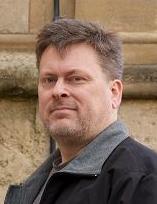 W
WEdward C. Feser is an American philosopher. He is an Associate Professor of Philosophy at Pasadena City College in Pasadena, California.
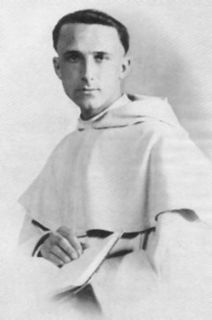 W
WRéginald Marie Garrigou-Lagrange was a French Catholic theologian and Dominican friar. He has been noted as a leading neo-Thomist of the 20th century, along with Jacobus Ramírez, Édouard Hugon, and Martin Grabmann. He taught at the Dominican Pontifical University of St. Thomas Aquinas, the Angelicum, in Rome from 1909 to 1960. There he wrote his magnum opus, The Three Ages of the Interior Life in 1938.
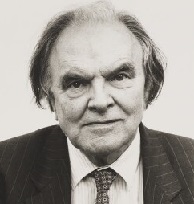 W
WPeter Thomas Geach was an English philosopher who was Professor of Logic at the University of Leeds. His areas of interest were philosophical logic, ethics, history of philosophy, philosophy of religion and the theory of identity.
 W
WRobert Peter George is an American legal scholar, political philosopher, and public intellectual who serves as the sixth McCormick Professor of Jurisprudence and Director of the James Madison Program in American Ideals and Institutions at Princeton University. He lectures on constitutional interpretation, civil liberties, philosophy of law, and political philosophy. A Catholic, George is considered one of the country's leading conservative intellectuals.
 W
WÉtienne Henri Gilson was a French philosopher and historian of philosophy. A scholar of medieval philosophy, he originally specialised in the thought of Descartes, yet also philosophized in the tradition of Thomas Aquinas, although he did not consider himself a Neo-Thomist philosopher. In 1946 he attained the distinction of being elected an "Immortal" (member) of the Académie française. He was nominated for the Nobel Prize in Literature.
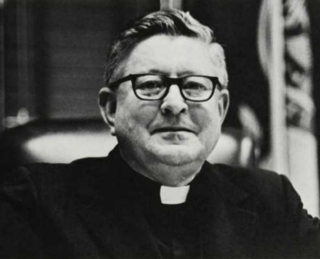 W
WRobert John Henle was an American Catholic priest, Jesuit, and philosopher who was the president of Georgetown University from 1969 to 1976. Born in Iowa, Henle entered the Society of Jesus in 1927. He taught high school classics and published a series of instructional books on Latin, one of which became widely used. He then became at professor at Saint Louis University and was known as one of the leaders of the revival of Thomistic philosophy and theology. He also served as a dean and vice president for nearly 20 years. In this latter capacity, he oversaw Saint Louis University's growing independence from, but continuing affiliation with, the Jesuit order.
 W
WJohn of Głogów was a notable Polish polyhistor at the turn of the Middle Ages and Renaissance—a philosopher, geographer and astronomer at the University of Krakow.
 W
WSir Anthony John Patrick Kenny is an English philosopher whose interests lie in the philosophy of mind, ancient and scholastic philosophy, the philosophy of Wittgenstein and the philosophy of religion. With Peter Geach, he has made a significant contribution to analytical Thomism, a movement whose aim is to present the thought of St. Thomas Aquinas in the style of analytic philosophy. He is one of the executors of Wittgenstein's literary estate. He is a former president of the British Academy and the Royal Institute of Philosophy.
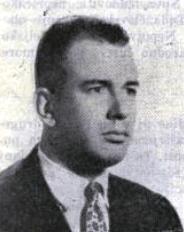 W
WMilan Komar, also known as Emilio Komar was a Slovene Argentine Catholic philosopher and essayist.
 W
WMieczysław Albert Maria Krąpiec OP – a Polish Roman Catholic priest, philosopher (thomist), theologian, humanist and social scientist, the rector of Katolicki Uniwersytet Lubelski (1970-1983), the founder of the Lublin Philosophical School, the initiator and president of the scientific committee of Powszechna Encyklopedia Filozofii.
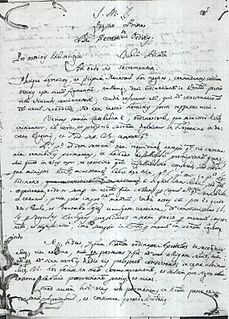 W
WJerome Leocata was a major Maltese philosopher who specialised mainly in metaphysics. His long academic career in philosophy and theology was very hampered by his many administrative commitments. His writings, however, bear witness to his thinking skills and his philosophical prowess. He possessed a clear and systematic mind, consistently endeavouring to give a sound philosophical basis to his speculations. No portrait of him is yet known to exist.
 W
WBernard Joseph Francis Lonergan was a Canadian Jesuit priest, philosopher, and theologian, regarded by many as one of the most important thinkers of the 20th century.
 W
WAlasdair Chalmers MacIntyre is a British-American philosopher who has contributed to moral and political philosophy as well as history of philosophy and theology. MacIntyre's After Virtue (1981) is one of the most important works of Anglophone moral and political philosophy in the 20th century. He is senior research fellow at the Centre for Contemporary Aristotelian Studies in Ethics and Politics (CASEP) at London Metropolitan University, Emeritus Professor of Philosophy at the University of Notre Dame, and Permanent Senior Distinguished Research Fellow at the Notre Dame Center for Ethics and Culture. During his lengthy academic career, he also taught at Brandeis University, Duke University, Vanderbilt University, and Boston University.
 W
WJoseph Maréchal, SJ was a Belgian Jesuit priest, philosopher, theologian and psychologist. He taught at the Higher Institute of Philosophy of the University of Leuven and was the founder of the school of thought called transcendental Thomism, which attempted to merge the theological and philosophical thought of St. Thomas Aquinas with that of Immanuel Kant.
 W
WJacques Maritain was a French Catholic philosopher. Raised Protestant, he was agnostic before converting to Catholicism in 1906. An author of more than 60 books, he helped to revive Thomas Aquinas for modern times, and was influential in the development and drafting of the Universal Declaration of Human Rights. Pope Paul VI presented his "Message to Men of Thought and of Science" at the close of Vatican II to Maritain, his long-time friend and mentor. The same pope had seriously considered making him a lay cardinal, but Maritain rejected it. Maritain's interest and works spanned many aspects of philosophy, including aesthetics, political theory, philosophy of science, metaphysics, the nature of education, liturgy and ecclesiology.
 W
WHerbert John Ignatius McCabe was a Dominican priest, theologian and philosopher.
 W
WAntonio Millán-Puelles was a Spanish philosopher interested in phenomenology and metaphysics, who published many books and articles. He discovered his vocation to philosophy when he read Husserl’s Logical Investigations and abandoned the medical studies he had just begun.
 W
WGiuseppe Pecci was a Jesuit Thomist theologian whose younger brother, Vincenzo, became Pope Leo XIII and appointed him a cardinal. The Neo-Thomist revival, which Leo XIII and his brother Giuseppe, Cardinal Pecci originated in 1879, remained the leading papal philosophy until Vatican II.
 W
WWolfgang Smith is a mathematician, physicist, philosopher of science, metaphysician, Roman Catholic and member of the Traditionalist School. He has written extensively in the field of differential geometry, as a critic of scientism and as a proponent of a new interpretation of quantum mechanics that draws heavily from medieval ontology and realism.
 W
WEdith Stein was a German Jewish philosopher who converted to Christianity and became a Discalced Carmelite nun. She is canonized as a martyr and saint of the Catholic Church; she is also one of six co-patron saints of Europe.
 W
WLuigi Taparelli was an Italian Jesuit scholar of the Society of Jesus who coined the term social justice and elaborated the principles of subsidiarity, as part of his natural law theory of just social order.
 W
WThomas Aquinas was an Italian Dominican friar, philosopher, Catholic priest, and Doctor of the Church. An immensely influential philosopher, theologian, and jurist in the tradition of scholasticism, he is also known within the latter as the Doctor Angelicus, the Doctor Communis, and the Doctor Universalis. The name Aquinas identifies his ancestral origins in the county of Aquino in present-day Lazio, Italy. Among other things, he was a prominent proponent of natural theology and the father of a school of thought known as Thomism. He argued that God is the source of both the light of natural reason and the light of faith. His influence on Western thought is considerable, and much of modern philosophy developed or opposed his ideas, particularly in the areas of ethics, natural law, metaphysics, and political theory.
 W
WCristóbal de Torres y Motones, OP was a Spanish-born prelate of the Catholic Church in New Spain. A member of the Dominican Order, in 1635 he was appointed archbishop of the Archdiocese of Santafé en Nueva Granada. There, he was one of the first bishops in New Spain to admit indigenous people to communion, and he later founded Del Rosario University in Bogotá.
 W
WTommaso Maria Zigliara, OP was a Corsican priest of the Catholic Church, a member of the Dominicans, a theologian, philosopher and a cardinal.